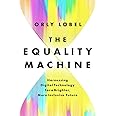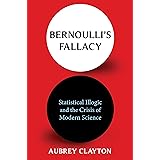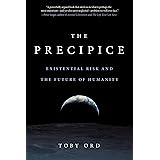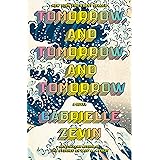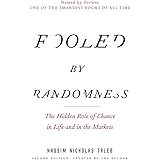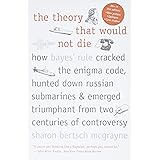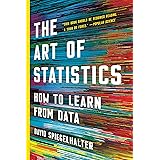
Enjoy fast, free delivery, exclusive deals, and award-winning movies & TV shows with Prime
Try Prime
and start saving today with fast, free delivery
Amazon Prime includes:
Fast, FREE Delivery is available to Prime members. To join, select "Try Amazon Prime and start saving today with Fast, FREE Delivery" below the Add to Cart button.
Amazon Prime members enjoy:- Cardmembers earn 5% Back at Amazon.com with a Prime Credit Card.
- Unlimited Free Two-Day Delivery
- Streaming of thousands of movies and TV shows with limited ads on Prime Video.
- A Kindle book to borrow for free each month - with no due dates
- Listen to over 2 million songs and hundreds of playlists
- Unlimited photo storage with anywhere access
Important: Your credit card will NOT be charged when you start your free trial or if you cancel during the trial period. If you're happy with Amazon Prime, do nothing. At the end of the free trial, your membership will automatically upgrade to a monthly membership.

Download the free Kindle app and start reading Kindle books instantly on your smartphone, tablet, or computer - no Kindle device required.
Read instantly on your browser with Kindle for Web.
Using your mobile phone camera - scan the code below and download the Kindle app.

OK
 Audible sample Sample
Audible sample Sample 


Escape from Model Land: How Mathematical Models Can Lead Us Astray and What We Can Do About It
Purchase options and add-ons
Why mathematical models are so often wrong, and how we can make better decisions by accepting their limits
Whether we are worried about the spread of COVID-19 or making a corporate budget, we depend on mathematical models to help us understand the world around us every day. But models aren’t a mirror of reality. In fact, they are fantasies, where everything works out perfectly, every time. And relying on them too heavily can hurt us.
In Escape from Model Land, statistician Erica Thompson illuminates the hidden dangers of models. She demonstrates how models reflect the biases, perspectives, and expectations of their creators. Thompson shows us why understanding the limits of models is vital to using them well. A deeper meditation on the role of mathematics, this is an essential book for helping us avoid either confusing the map with the territory or throwing away the map completely, instead pointing to more nuanced ways to Escape from Model Land.
- ISBN-101541600983
- ISBN-13978-1541600980
- PublisherBasic Books
- Publication dateDecember 6, 2022
- LanguageEnglish
- Dimensions6.3 x 1.05 x 9.55 inches
- Print length256 pages
Frequently bought together

Similar items that may deliver to you quickly
Editorial Reviews
Review
―Wall Street Journal
"[A] highly engaging work of popular science, in which accessibility to the ideas is given priority over academic muscle-flexing."―Engineering & Technology
“Math-based models have become the secret machinery of our society, and this book draws back the curtain for a close look…. A complex subject rendered in accessible terms, with good advice for using models without drowning in data.”―Kirkus (starred)
"An eye-opening account of the limits and uses of mathematical models... a thoughtful, convincing look at how data works."―Publishers Weekly (starred)
“Data, computing power, AI, and the models that use them will continue to proliferate. The wisdom, life experience, and humility to make the best use of those powerful tools will remain scarce. This delightfully wide-ranging book offers heaps of the latter to help us generate genuine insights from the former.”―Charles J. Wheelan, New York Times-bestselling author of Naked Statistics
“A brilliant account of how models are so often abused and of how they should be used.”―John Kay, author of Other People’s Money
“Escape from Model Land demystifies the process of making the mathematical models that are increasingly used to make decisions about our lives, from the financial markets to the pandemic to climate change. A thought-provoking and helpful guide for data scientists and decision makers alike.”―Stephanie Hare, author of Technology Is Not Neutral
“A wise, lucid and compelling guide to how mathematical modelling shapes our world. Thompson teaches us how to go from being unthinking consumers of models to sophisticated users, combining a rich variety of vivid examples and case studies with deep conceptual expertise, presented in a lively and accessible way.”―Stian Westlake, CEO, Royal Statistical Society
About the Author
Product details
- Publisher : Basic Books (December 6, 2022)
- Language : English
- Hardcover : 256 pages
- ISBN-10 : 1541600983
- ISBN-13 : 978-1541600980
- Item Weight : 15.5 ounces
- Dimensions : 6.3 x 1.05 x 9.55 inches
- Best Sellers Rank: #414,380 in Books (See Top 100 in Books)
- #144 in Statistics (Books)
- #575 in Probability & Statistics (Books)
- #12,506 in Unknown
- Customer Reviews:
About the author

Discover more of the author’s books, see similar authors, read author blogs and more
Customer reviews
Customer Reviews, including Product Star Ratings help customers to learn more about the product and decide whether it is the right product for them.
To calculate the overall star rating and percentage breakdown by star, we don’t use a simple average. Instead, our system considers things like how recent a review is and if the reviewer bought the item on Amazon. It also analyzed reviews to verify trustworthiness.
Learn more how customers reviews work on Amazon-
Top reviews
Top reviews from the United States
There was a problem filtering reviews right now. Please try again later.
Despite the world’s current worship of data as holding the answer to all questions, data are dumb. They know nothing. They rely on models to add meaningful relationships between them. Said slightly differently, all data exist in context. And no context relating to the reality of the world we live in can ever be completely knowable. It is simply too complex to draw it all together in a definable mathematical form.
Which is why she quotes British statistician, George Box, as famously noting that, “All models are wrong.” She notes, “The forecast is a part of a narrative…An engine, not a camera; a co-creator of truth, not a predictor of truth.” “Even if the model is ‘made’ by an artificial intelligence rather than by a human expert, it inherits in a complex way the priorities of those original creators.”
That is not to say, however, that we should simply jettison all of the modelers and revert to simple intuition or folklore for guidance in dealing with complex issues like weather, climate change, and pandemics. We just need to use their models responsibly. We need to understand their limitations and potential biases that may be unknowingly built into them.
And she concludes the book with five recommendations that should be adopted to help do just that. And they all make sense to me.
I live in the world of business, not public policy. And in the 45 years I have toiled in the corporate world I have been alarmed at the degree to which business people today rely on data and the financial models they create with them to make important decisions that greatly impact the lives of real people. Intuition and experience are largely dismissed, which is one of the reasons youth is in and those who have been there before are largely relegated to the back of the room.
Virtually no project gets approved today if it is not supported by an elaborate financial model. And if you can say that it was built with Big Data it is almost a shoe-in. Yet are our corporate decisions today any more accurate, or just less considerate of the company’s constituencies, particularly its employees.
Common sense is the oldest form of intuition there is and this book is full of it. Wherever you stand on the largest issues of the day, like climate change, this book will help you become more informed and better able to represent your position.
And it’s all written in language that any of us can follow. No mathematical notations or dense scientific jargon. The writing is very conversational and easy to follow.
Well done.
One nit: While the book hints at the problem of poor data quality, it does not give it the attention it deserves. Especially with high-powered tools, garbage in is still garbage out. Those trapped in model land fall prey to this issue.
One of her provocative claims is that modeling provides a framework to use, which can be useful even if the framework isn't right. That's an astute observation, although--obviously--a "bad" framework can sometimes have very nasty consequences and support dangerous nonsense (e.g., astrology.
The book's biggest weakness, perhaps, is ascribing too much virtue to human discourse and reasoning that is not explicitly model-based. It sometimes seems as though she is saying the solution is to have better experts. or more common sense. If only it were so easy. Another problem is a tendency to generalize --focusing on examples of bad practice. She gives little space to practices that can do better. For example, muti-resolution, multi-perspective modeling and broad-reaching exploratory analysis under uncertainty can help. Making sharp distinctions between using models for description, explanation, postdiction, exploration and prediction is important. Agent-based modeling can represent possible behaviors and heuristics. Including uncertain qualitative factors can help. More generally, vigorous discussion, review, and debate can help. She doesn't adequately distinguish between statistical "modeling" with the benefit of empirical data and more speculative causal modeling to help in dealing with futures for which appropriate data is often lacking.
I would have been happier if her conclusion had been more a call for balance and a description of what kinds of balance researchers might seek. I would also have welcomed candid recognition that the quality of practitioners matters. Some practitioners are simply far better and wiser than others.
Top reviews from other countries
I felt it was surprisingly kind to economists, who it seems to me are more frequently lost in model-land than many other disciplines - and so would do well to read this book. I'd always thought that the joke about the economist assuming a can-opener to open their tin of beans related to the tendency of economists to hang on to assumptions that have been proved wrong (unlike other disciplines where this signals the need to find alternatives). In the book, though this is used more to look at the imaginary can-openers we all carry around.
I look forward to a future book which dwells a little more on the solutions to complement this book which articulates well the problems of modelling without getting lost in the minutiae of how individual models work.
This book mostly covers single interactions, as when a single report is presented to decision-makers. It considers its effect as a single action even when, as with the IPCC, that report may be years in production or revision. Another example of a single interaction would be the modelling advice leading to the first covid lockdowns. It does not consider a process of dialogue, or of a team of modellers gaining or losing a reputation with decision makers over time. The software development precedent for this would be Agile development, where, drawing on what is now a large collection of widely used software infrastructure, a software developer can provide early versions of their program to user representatives and repeatedly modify it to take account of their reaction to it, and still deliver on time. Perhaps, if decision makers engaged in repeated dialogues with modellers who followed a consistent process, decision makers would find Model Land a less treacherous place.




